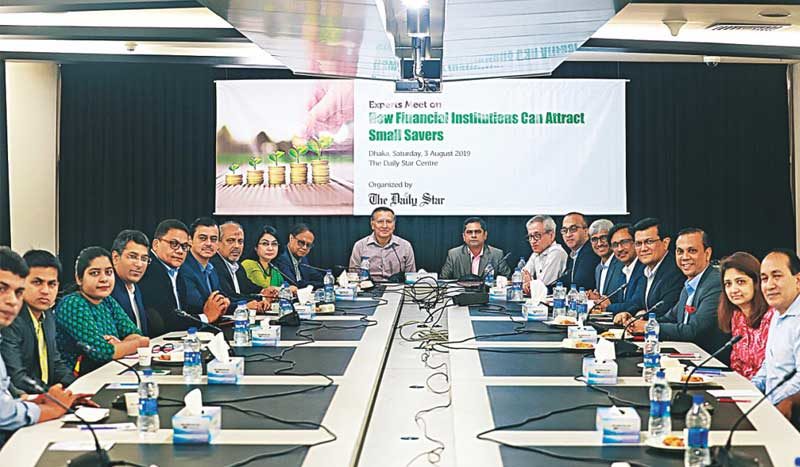Published in The Daily Star on Sunday 4 August 2019
Win back trust to thrive

“Trust is the crux of the issue in any financial sector. It is the major determinant of survival,” said Fahmida Khatun, executive director of the Centre for Policy Dialogue.
Khatun’s comments came at a dialogue styled ‘Experts meet on How Financial Institutions can attract small savers’, organised by The Daily Star at its office in Dhaka.
Coupled with this, political interference, high bad loans, lengthy and cumbersome account opening procedures and direct and indirect taxes are keeping a large number of people away from keeping their money with the formal financial system.
As a result, a huge amount of money is floating in the informal system — popularly known as ‘under mattress’ — depriving the economy from funds for investment.
The views are shared at a time when banks are struggling with liquidity crunch, loan scandals and high amounts of bad loans — a situation that has eroded confidence of many depositors.
At the same time, withholding tax on interest income of savers, value-added tax on services of bank accounts as well as excise duty on balance in accounts are also acting as deterrents for savers.
Since fiscal 2008-09, gross domestic savings rose 3.89 percentage points to 23.93 percent of GDP in fiscal 2018-19, according to Bangladesh Economic Review 2019.
Until December 2018, banks had 9.52 crore accounts with Tk 10.82 lakh crore in deposits.
A number of reforms were implemented in the banking sector since the 1990s, according to Khatun.
“Just as we were starting to see the results, we got a shock. And it is not just the regulatory or policy related issues. There is also interference of powerful people,” she said, adding that the powerful people are politically connected.
When you provide good services, customers will come. It is the most natural way of attracting new business. Ease of operations make it easier for service providers and customers alike. Many of the policies which are being implemented by the central bank do not fit in with the current demand of customers. We have had reforms in the past, with many of them producing positive results. But due to political interference many reforms are not working, particularly in state-owned banks. When rules and regulations are being violated in the public sector, private industry banks also follow suit.
Faulty financial institutions should be allowed to die a natural death. Why do government institutions have to rescue them? Others then get encouraged to take part in such practices. In this process, private greed is being funded by the public money.
The auditing process of financial institutions also needs to be transparent.
Additionally, the monitoring and overseeing capacities of the Bangladesh Bank should be strengthened.

